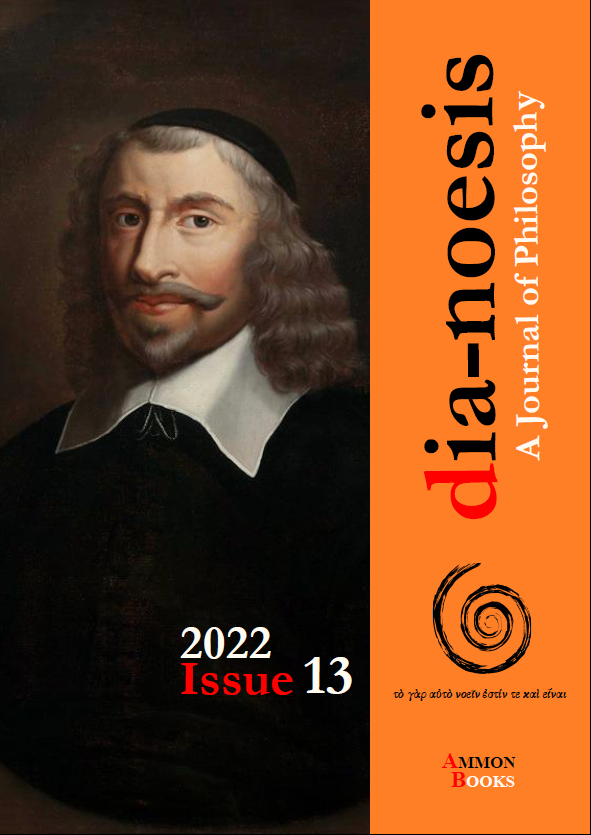From the Orphic texts to the Homeric Epics and to the Dramatic Poetry: The appearance of the Reasonable Man

Abstract
Logos is the most important requested thing, because this is the internal joint which unites beings and their evolution. We think of Logos as a gnosiological and not ontologiacal factor. We are making mention of Logos as a real process and not as a simple manner, because we believe that human Logos could be known by the man of thought and action. Orphic texts rasionalize the universe as a kind of movements and as a dynamic evolution. They can see inside the universal forces the very cause, manner and the purpose of proceeding and improvement, so far these forces are not naughtily thrown any more. Homer’s epics offered an invaluable service to the Humane spiritual arsenal: They connected men with the macrocosm powers, Odysseus, Achilles are made of the same universal powers. These powers are the very God’s content, twelve Gods evolve kosmos according to these universal powers in a humane manner. Human qualities which are attributed to the gods help men to imitate this anthropomorphic way of the gods in order human Logos slowly intervene to the universe world. All these interventions could be transferred through Logos inside human society, inside human organizations. Odysseus learns to use Logos through his contact with the human form of goddess Athena – who represents the Wisdom. So, he can justify his actions, he is able of categorizing his life, he manages to complete his Nostos, the very purpose of Him. In the 5th century a.d. Athens was the sum of people like the Odysseus. The glory City of Athens was an aggregate of thinking people like a Kingdom of wisdom, which is projected in the poetical work of tragic poetry. The reasonable Subject of the Athenean Democracy came up through the Orphic texts and Homeric Epics (we should not forget that Peisistratus (an Athenean tyrant) introduced the Homeric Epics because he thought that these texts could cultivate Athenean adolescents). This reasonable Subject believed that he could transform the universal powers (which influence the earth movement) into ideal social forces, which are able to produce atomic and social happiness and eydaimonia. The bitter denial, which happened through Peloponnesian War, disappeared this kind of human individualism as a piece of universal power. So far kosmic forces separated into two parts: what I can think (idea) and what I could act (praxis). Humanity proceeded glorifying not the sense of what there really exists but glorifying the sense of what I am thinking that there really exists. Plato and Aristotle supported this appreciable process because they thought that idea and not what there really exist is the basis of Human skepsis and praxis.
Article Details
- How to Cite
-
Makripoulias, V. (2024). From the Orphic texts to the Homeric Epics and to the Dramatic Poetry:: The appearance of the Reasonable Man. Dia-Noesis: A Journal of Philosophy, 13, 173–188. https://doi.org/10.12681/dia.37789
- Section
- Articles


